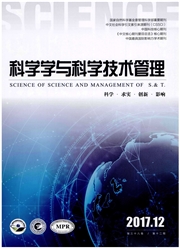

 中文摘要:
中文摘要:
基于探索和利用计算模型,分析了隐性知识比例、个人偏差程度对组织平均知识水平的影响,结果发现:在不存在环境扰动的情况下,个人偏差对组织平均知识水平有消极影响,隐性知识对组织平均知识水平有积极影响,且个人偏差的消极影响强于隐性知识的积极影响;在扰动的环境中,隐性知识和个人偏差的存在都有利于提高组织平均知识水平。由于将隐性知识编码化和减少个人偏差分别是知识存储系统和决策支持系统的主要目的,因此建议在扰动的环境下无需采用这两种信息技术;而在稳定环境下采用决策支持系统有利于提高组织长期的平均知识水平,采用知识存储系统有利于提高组织决策速度。
 英文摘要:
英文摘要:
Based on the computational model of exploration and exploitation, this paper analyzes the effects of the ratio of tacit knowledge and the degree of individual bias on the average knowledge level of organizations. It is found that, in environments of no turbulence, individual bias has negative effects on the average knowledge level of organizations, tacit knowledge has positive effects on the average knowledge level, and the negative effects of individual bias is stronger than the positive effects of tacit knowledge. In turbulent environments, the presence of both tacit knowledge and individual bias improves the average knowledge level of organizations. As coding tacit knowledge and reducing individual bias are respectively the major goals of knowledge storage systems and decision support systems, the results suggest that neither of the two information technologies should be used in turbulent environments, while in stable environments decision support systems should be used for high long-term average knowledge level and knowledge storage systems for rapid decision.
 同期刊论文项目
同期刊论文项目
 同项目期刊论文
同项目期刊论文
 期刊信息
期刊信息
